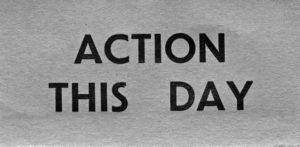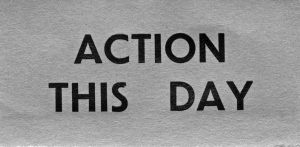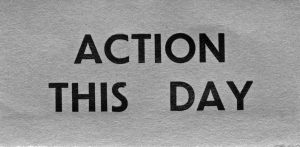StoryElement
Churchill’s famous speeches

Winston Churchill, Parliament Square, London © Sue Lowry & Magellan PR
January 1, 1970
Churchill’s speeches during these crucial months didn’t avoid the realities facing Britain; he spoke of ‘blood, toil, tears and sweat’ (13 May 1940) – but also of determination; ‘we shall go on to the end … we shall fight on the beaches, we shall fight on the landing grounds … we shall never surrender’ (4 June 1940).
Although he only made five broadcasts to the nation during this vital period, they conveyed Churchill’s determination and commitment, and they gave his country confidence.
The day after France fell to the Germans, Churchill made perhaps his finest speech of this period – commonly known now by its most famous phrase, ‘This was their Finest Hour’ – which was delivered to the House of Commons on 18 June and broadcast by the BBC to the nation later that evening. A page from Churchill’s typewritten speech notes (set out in his usual ‘psalm’ style, to aid delivery) can be seen on the right.
See more on Churchill’s powerful oratory and the role this played in the battle for Britain in a virtual exhibition hosted by the Churchill Archive here.
For a recent scholarly analysis of Churchill’s speeches and how they were received at the time by different audiences, see Richard Toye’s The Roar of the Lion. This argues, amongst other things, that the speeches were not universally popular and that some of the most well received speeches at the time are not among the ones we tend to remember now. However, it also gives an insight into how Churchill wrote the speeches and further information on the huge numbers that listened to them.
Subscribe
WANT MORE?
Get the Churchill Bulletin delivered to your inbox once a month.






